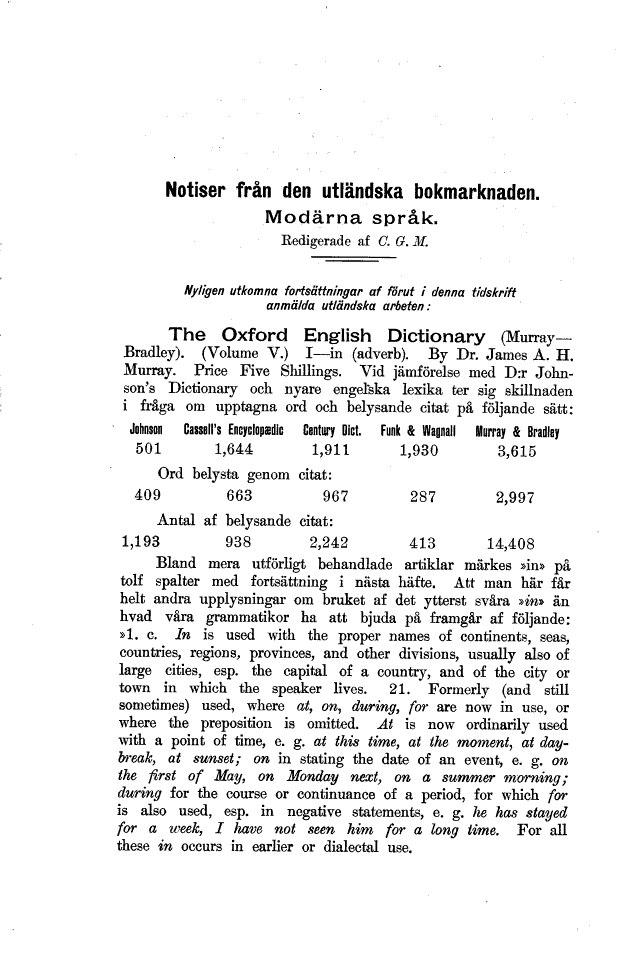
Full resolution (TIFF) - On this page / på denna sida - Sidor ...

<< prev. page << föreg. sida << >> nästa sida >> next page >>
Below is the raw OCR text
from the above scanned image.
Do you see an error? Proofread the page now!
Här nedan syns maskintolkade texten från faksimilbilden ovan.
Ser du något fel? Korrekturläs sidan nu!
This page has never been proofread. / Denna sida har aldrig korrekturlästs.
Notiser från den utländska bokmarknaden.
Modärna språk.
Eedigerade af C. G. M.
Nyligen utkomna fortsättningar af förut i denna tidskrift
anmälda utländska arbeten:
The Oxford English Dictionary
(Murray-Bradley). (Volume Y.) I—in (adverb). By Dr. James A. H.
Murray. Price Five Shillings. Vid jämförelse med D:r
Johnson’s Dictionary och nyare engelska lexika ter sig skillnaden
i fråga om upptagna ord och belysande citat på följande sätt:
Johnson Cassell’s Encyclopaedic Century Diet. Funk & Wagnall Murray & Bradley
501 1,644 1,911 1,930 3,615
Ord belysta genom citat:
409 663 967 287 2,997
Antal af belysande citat:
1,193 938 2,242 413 14,408
Bland mera utförligt behandlade artiklar märkes »in» på
tolf spalter med fortsättning i nästa häfte. Att man här får
helt andra upplysningar om bruket af det ytterst svåra »in» än
hvad våra grammatikor ha att bjuda på framgår af följande:
»1. c. In is used with the proper names of continents, seas,
countries, regions, provinces, and other divisions, usually also of
large cities, esp. the capital of a country, and of the city or
town in which the speaker lives. 21. Formerly (and still
sometimes) used, where at, on, during, for are now in use, or
where the preposition is omitted. At is now ordinarily used
with a point of time, e. g. at this time, at the moment, at
daybreak, at sunset; on in stating the date of an event, e. g. on
the first of May, on Monday next, on a summer morning ;
during for the course or continuance of a period, for which for
is also used, esp. in negative statements, e. g. he has stayed
for a week, I have not seen him for a long time. For all
these in occurs in earlier or dialectal use.
<< prev. page << föreg. sida << >> nästa sida >> next page >>